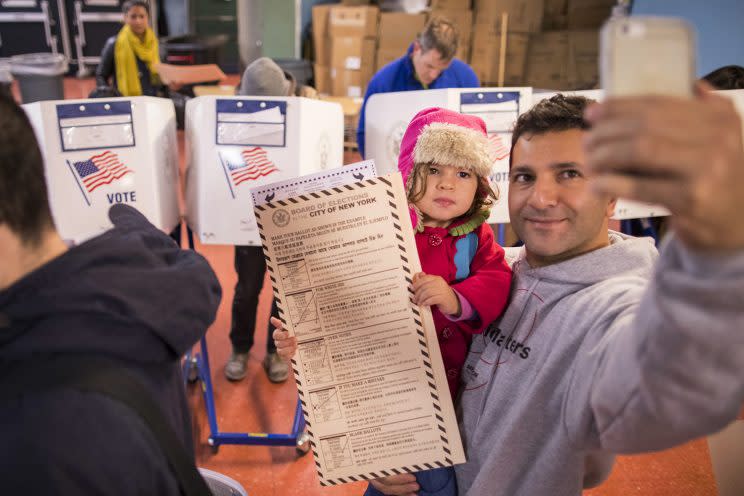Supreme Court lets New Hampshire ‘ballot selfie’ ruling stand

The Supreme Court on Monday declined to hear Gardner v. Rideout, a case that could have reinstated New Hampshire’s ban on “ballot selfies” in the voting booth.
The court’s decision not to hear the case essentially leaves in place a 2016 ruling by the First Circuit Court of Appeals in Boston, which ruled 3-0 that the ban was unconstitutional and violated free speech principles.
New Hampshire passed the so-called ballot selfie ban in 2014, attaching a penalty of up to $1,000, reasoning that allowing the practice might inadvertently facilitate vote buying or voter intimidation. Later that year, the American Civil Liberties Union of New Hampshire filed a lawsuit on behalf of three voters in the state. Ruling in the ACLU’s favor, the appeals court said the law was too broad, writing in their decision that it was the equivalent of “burning down the house to roast the pig.”
“Ballot selfies have taken on a special communicative value: They both express support for a candidate and communicate that the voter has in fact given his or her vote to that candidate,” the ruling read.
The First Circuit Court of Appeals’ decision also affects Maine, Massachusetts, Rhode Island and Puerto Rico.
Appealing to the Supreme Court, New Hampshire Secretary of State William Gardner said, “With recent advances in technology, one’s right to vote freely without fear of retaliation is in jeopardy.” He added that allowing photographs of ballots to be shared would “eliminate the anonymity of the secret ballot.”
After the Supreme Court’s decision not to hear the case was announced Monday, Gilles Bissonnette, the legal director of the ACLU of New Hampshire, applauded the decision. “The First Amendment does not allow the State to, as it was doing here, broadly ban innocent political speech with the hope that such a sweeping ban will address underlying criminal conduct,” he said in a statement.
William Christie, co-counsel on the case, echoed Bissonnette’s sentiment, noting “there is no more potent way to communicate one’s support for a candidate than to voluntarily display a photograph of one’s marked ballot depicting one’s vote for that candidate.”
Read more from Yahoo News:
Trump rehashes Democratic primary debate controversy to deflect from Russia probe
EPA chief admits climate change is real — but ‘the real issue is how much we contribute to it’
‘Our Dishonest President’: L.A. Times editorial eviscerates Trump
Photos: St. Petersburg metro blast: At least 10 dead in Russian subway station explosion



